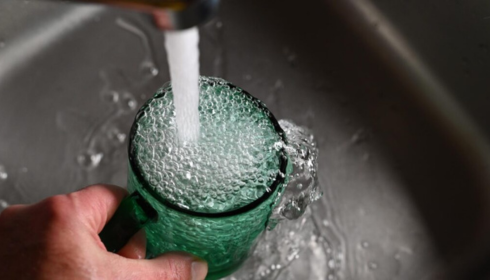When Your Tap Water Smells Like Rotten Eggs: A Real Look at What’s Happening and How to Fix It
August 26, 2025

If you’ve ever turned on your kitchen faucet, expecting a clean splash of water, only to be greeted by a smell that makes you wrinkle your nose—yeah, you’re not alone. For a lot of homeowners, particularly those relying on private wells, there’s nothing more unsettling than realizing the water that’s supposed to hydrate and clean you actually smells like sulfur. It’s one of those little household mysteries that can quickly grow into a daily frustration.
In Hutchinson, Minnesota, and plenty of other places across the Midwest, this issue pops up often enough that people swap stories about it at hardware stores and local coffee shops. The truth is, nobody really wants to admit that their water smells bad, but once it happens, it’s impossible to ignore. That sulfur smell in water Hutchinson MN homeowners talk about isn’t just a quirk—it’s usually a sign that something’s going on underground.
Why Does the Water Smell Like That?
Let’s get into the science without overcomplicating it. That eggy, sulfuric odor comes from hydrogen sulfide gas. It’s produced when sulfur bacteria interact with organic matter in your well or plumbing system. Think of it like this: bacteria are having a feast, and the byproduct of their meal is that unpleasant smell drifting through your sink and shower.
For many, it’s not constant. Some days the odor is stronger, other times it’s faint. A lot depends on the temperature, the source of the water, and even the time of year. And while it’s not usually harmful in small concentrations, it can stain fixtures, discolor laundry, and definitely ruin a good cup of coffee. Nobody wants to drink or bathe in water that makes them gag, plain and simple.
The most common complaint I hear sounds like this: “My well water smells like rotten eggs every time I run the hot tap, but the cold water’s fine.” That’s not your imagination. Hot water heaters often accelerate the reaction that creates hydrogen sulfide gas. The result? A smell that seems magnified, right when you’re trying to relax with a shower.
A Problem That Sneaks Into Daily Life
What surprises people the most is how quickly this becomes more than just a nuisance. You invite friends over for dinner and suddenly feel embarrassed pouring glasses of water. Or you start avoiding your own tap, lugging jugs of bottled water from the grocery store like you’re stocking up for a camping trip.
I remember visiting a family friend who lived out near Hutchinson, and they joked about brushing their teeth with “egg water.” It was funny for about three seconds before the reality set in: living with that smell day in and day out is exhausting.
Figuring Out the Source
Now here’s the tricky part: not all sulfur odors come from the same place. Sometimes the problem lies deep in the well. Other times it’s hiding in your plumbing system, like the water heater’s anode rod. In some cases, it’s a seasonal thing where groundwater shifts stir up sulfur bacteria.
So before running out and buying every filter on the shelf, it’s smart to test. Local water treatment companies in Minnesota, including Hutchinson, often provide free or low-cost testing services. A water test can confirm whether it’s hydrogen sulfide gas, iron bacteria, or something else entirely.
Real Fixes That Actually Work
Once you know the culprit, the path forward makes more sense.
- Shock chlorination: Think of this as a deep clean for your well. It kills sulfur bacteria temporarily, but if conditions are right, the smell can come back.
- Activated carbon filters: Great for removing odors in smaller doses, especially for drinking water taps.
- Oxidation and aeration systems: These are more permanent solutions, introducing air or chemicals to neutralize the sulfur. They work wonders for whole-house use.
- Water heater adjustments: Sometimes replacing the anode rod in your heater or raising the temperature can reduce the smell.
If you’ve been Googling “how to fix smelly tap water” late at night, you’ll quickly find that one size doesn’t fit all. That’s because the right solution depends on how severe the odor is, where it’s coming from, and whether it’s tied to hot, cold, or both.
Living With Fresh Water Again
Here’s the good news: once treated, water can go back to being exactly what it should be—clean, refreshing, and odor-free. Imagine running a bath without hesitation or pouring a glass straight from the sink without giving it a sniff test first. That’s not too much to ask.
What’s more, taking care of the problem now can save your plumbing and appliances in the long run. Hydrogen sulfide, left unchecked, can corrode metal pipes and damage fixtures. So it’s not just about comfort—it’s about protecting your home, too.
Final Thoughts
Water is one of those everyday things we take for granted—until something goes wrong. When your tap starts smelling like rotten eggs, it’s not just unpleasant, it’s disruptive. The good news is, you don’t have to live with it forever. From quick fixes to professional filtration systems, there are plenty of ways to get back to clear, odor-free water.
